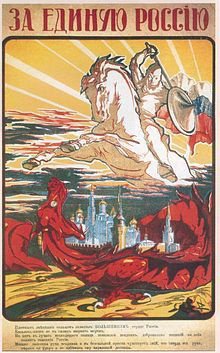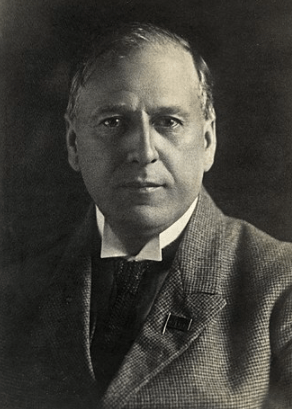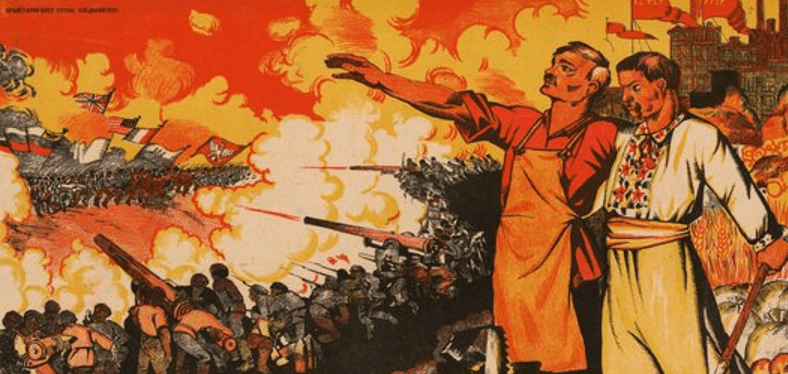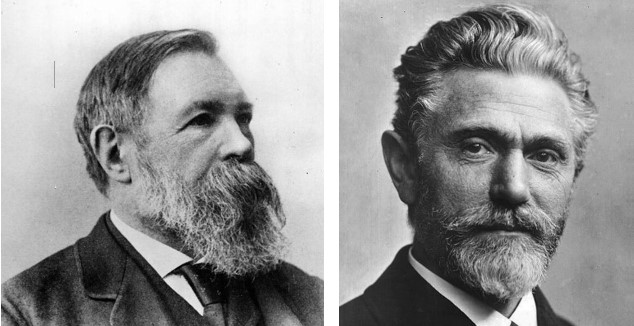By Andy Ford
Tensions between Russia and Ukraine have once again brought the two countries’ complex relationship into prominence. One of the key periods in their mutual history is the early 1920s when the gifted Bolshevik, Christian Rakovsky brought Ukraine into a voluntary federation with Russia, within the USSR.
Rakovsky was born in 1873, and he ended his life in front of a firing squad in 1941 in one of Stalin’s jails. Beside Lenin and Trotsky he could probably be counted as one of the most gifted Bolshevik theorists and writers, and he was one of Trotsky’s few close friends. Trotsky wrote of him:
“Comrade Rakovsky is internationally one of the best known figures in the European Socialist movement. A Bulgarian by birth, Rakovsky comes from the town of Kotel, in the very heart of Bulgaria, but he is a Rumanian subject by dint of the Balkan map, a French physician by education, a Russian by connections, by sympathies and by literary work.
“He speaks all the Balkan and four European languages; he has at various times played an active part in the inner workings of four socialist parties—the Bulgarian, the Russian, French and Rumanian—to become eventually one of the leaders of the Soviet Federation, a founder of the Communist International, President of the Ukrainian Soviet of People’s Commissars, and the diplomatic soviet representative in England and France—only to share finally in the fate of all the “left” opposition. Rakovsky’s personal traits, his broad international outlook, and his profound nobility of character, have made him particularly odious to Stalin, who personifies the exact opposite of these qualities.”
The Russian Revolution in the Ukraine: from separation to federation
Rakovsky had worked with Trotsky on the Nashe Slovo paper, which even Lenin admitted was read more widely than Pravda and had later joined the Bolsheviks, along with Trotsky, in 1917. He was then appointed in 1919 by Lenin to head the Bolshevik government in Ukraine, where he had to contend with a White army led by Denikin and fascistic Ukrainian nationalists, led by Simon Petlyura. Because of Rakovsky’s political work in the Balkans, he was already armed with the outlines of an approach to the problems of nationalism.

In his early political activity, he had written extensively on the Balkan Wars, pointing out the futility of competing nationalisms which sought to solve one nation’s problems at the expense of others, and at the expense of their own internal minorities, these small nationalities usually ending up as a tool of one or another of the large imperialist powers. Instead, he advocated an equal and voluntary socialist Balkan Federation of all the nations. He attempted to apply this framework in the Ukraine.
The problem was that the Ukraine was 80% rural and the Bolshevik support was mainly of Russian and Jewish, not Ukrainian, workers in the cities. This gave the Ukrainian nationalists an easy stick with which to beat the Bolsheviks, while at the same time trying to continue the economic subjugation and exploitation of the Ukrainian peasant masses.
Rakovsky managed eventually, despite initial mistakes, to win over the Ukrainian left peasant party of the Borot’bists on a class programme which was sensitive to their national aspirations, so giving the Bolsheviks a mass base amongst the Ukrainian peasants for the first time, thereby ensuring that Ukraine was won for Soviet power.
From 1921 Rakovsky fought for real economic autonomy of Ukraine against the centralising influences that were beginning to appear in the Russian party, even striking independent Ukrainian economic agreements with France and Poland, and in 1923 decreeing that Ukrainian government permission was required for foreign companies to open independent economic ventures in the country. He was initially opposed by Lenin, but as events moved on, and especially after Stalin’s centralising and oppressive actions in Georgia in 1921, Lenin saw and corrected his error – “Where do such (centralising) statements come from?” Lenin asked. “Do they not come from the same Russian apparatus … (we) borrowed from tsardom and simply covered with a Soviet veneer?”
Great Russian chauvinism re-emerges as part of Stalinist bureaucracy
When Trotsky, against Lenin’s advice, ducked the issue of the National Question in the USSR at the Twelfth Party Congress in April 1923 and made a compromise with Stalin, Zinoviev and Kamenev, it was Rakovsky who made a stand, pointing out that in order to appeal to the oppressed nations in the European Asiatic empires, the USSR had to have a credible policy towards its own minorities.

Rakovsky disputed with those who said that the Soviets had ‘solved’ the National Question. “Tell me, comrades” he asked, “how many of you can explain in what way the October revolution solved the nationalities question? It did not resolve it, nor could it have. National culture does not cease to exist because the state is a workers’ state or because the economy is no longer privately owned. National culture is ‘the only way’ through which the working and peasant masses will gain access to political and cultural life.”
He traced the increasing tendency to Russian chauvinism back to its bureaucratic roots. Rakovsky lost the vote at the 12th Congress but wrote afterwards,
“If by centralism one must understand the concentration of power in the hands of a single central organization and the transformation of the popular masses into a docile instrument destined to execute the orders of the central power; if by centralism one must understand the elimination of initiative, of economic, political and administrative independence; if by centralism one must understand this dead bureaucratic centralization which is synonymous with tyranny, then, evidently there is no greater enemy of Soviet power than centralism … Against such centralization communists will always fight with the greatest resolve.” To get Rakovsky out of the way, Stalin sent him as ambassador to Britain, a trick he employed in the 1920s with many of his more gifted rivals.
The Ukraine under Stalinism: purges, mass murder and starvation
Trotsky pointed out that the purges and murders of Stalin were especially vicious in Ukraine. He ascribed this to the combination of Stalin’s general repressions with a repeated expression of the natural wish of Ukrainians for some measure of autonomy, economic control and respect for their culture.
Trotsky showed that huge proportions of Communist Party officials disappeared from the records of party congresses over successive years of the 1930s. (They are still digging up the mass graves today). Tellingly, Khrushchev survived and even prospered throughout this period,
In the words of Trotsky, “Nowhere did restrictions, purges, repressions and in general all forms of bureaucratic hooliganism assume such murderous sweep as they did in the Ukraine in the struggle against the powerful, deeply-rooted longings of the Ukrainian masses for greater freedom and independence.”
Nazis initially welcomed in Western Ukraine
The repressions of Ukrainian party members, intellectuals and anyone with an independent thought, combined with the mass starvation caused by the Stalinist collectivisation of agriculture in 1929-30 completely destroyed the base of support created under Rakovsky. In fact when the Nazis invaded in 1941 they were initially welcomed by many villagers, who even on some occasions came with lists of Stalinist officials.
Trotsky pointed out that “Not a trace remains of the former confidence and sympathy of the Western Ukrainian masses for the Kremlin. Since the latest murderous purge in the Ukraine no one in the west wants to become part of the Kremlin satrapy which continues to bear the name of Soviet Ukraine.”
His solution was to uphold the right of self determination for Ukraine, not on a nationalist basis but in fact to disarm the Ukrainian nationalists, and so to allow a rebirth of the Marxist social programme for the Ukraine. “In my opinion”, he wrote, “there can be at the present time only one such slogan: A united, free and independent workers’ and peasants’ Soviet Ukraine.”
In answer to the Stalinists and some other Marxists who said Ukrainian independence would weaken the USSR he replied, “But the independence of a United Ukraine would mean the separation of Soviet Ukraine from the USSR, the ‘friends’ of the Kremlin will exclaim in chorus. We reply – What is so terrible about that? The fervid worship of state boundaries is alien to us. We do not hold the position of a ‘united and indivisible’ whole.” The same argument applies to China today in relation to Xinxiang and Inner Mongolia.
All the Stalinists had to offer to Ukraine were more repressions and more mass murder. In Stalin’s crude thinking, “No man, no problem!” In fact the methods of Stalinism precisely gave birth to the virulent Ukrainian nationalism and even fascism of today.
Further reading:
Gus Fagan – “Biographical Introduction to Christian Rakovsky”, Marxist Internet Archive
Mass grave in Ukraine – https://www.bbc.co.uk/news/world-europe-58340805
Trotsky – “Problem of the Ukraine”, Marxist Internet Archive
Trotsky – “Independence of Ukraine and Sectarian Muddle Heads”, Marxist Internet Archive



